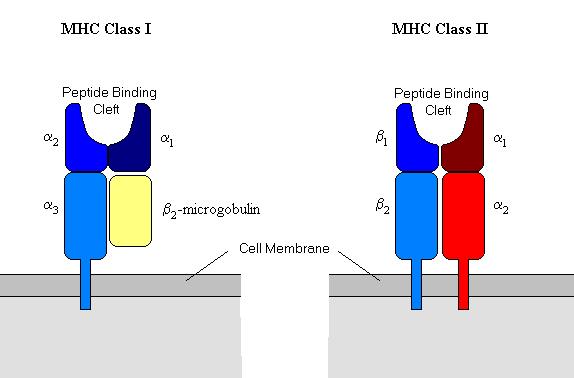Th17 Cells - A New T Cell Lineage
CD4+ T helper cells are critical mediators of the cellular immune response. For many years, due to cytokine expression patterns, it was thought that CD4+ T helper cells existed as a dichotomy of lineages named Th1 and Th2. However, as these subsets were analyzed more closely, it became apparent that the T helper cell population was not limited to these two subsets. Although it has long been appreciated that IL-17 (also known as IL-17A) production by T cells is required for protection against some pathogens, in 2000 it was demonstrated that IL-17A was produced by a unique subset of T helper cells. Subsequently, it was definitively shown that T cells could differentiate into IL-17-producing cells in vitro and in vivo independently of Th1 or Th2 cell development thereby establishing Th17 cells as a unique T helper cell lineage. Functionally, Th17 cells play a role in host defense against extracellular pathogens by mediating the recruitment of neutrophils and macrophages to infected tissues. Moreover, it has become evident that aberrant regulation of Th17 cells may play a significant role in the pathogenesis of multiple inflammatory and autoimmune disorders. Differentiation of Th17 cells is controlled by a “master-regulator” transcription factor, ROR gamma t, which directs a specific and heritable gene expression profile. ROR gamma t was initially identified as a thymus-specific isoform of ROR gamma, and later, it was discovered that ROR gamma t is also expressed in Th17 cells. ROR gamma t deficiency results in diminished Th17 activity and
Immunotherapy in prostate cancer: Emerging strategies against a
Recent clinical trials have shown therapeutic vaccines to be promising treatment modalities against prostate cancer. Unlike preventive vaccines that teach the immune system to fight off specific microorganisms, therapeutic vaccines stimulate the immune system to recognize and attack certain cancer-associated proteins. Additional strategies are being investigated that combine vaccines and standard therapeutics, including radiation, chemotherapy, targeted therapies, and hormonal therapy, to optimize the vaccines’ effects. Recent vaccine late-phase clinical trials have reported evidence of clinical benefit while maintaining excellent quality of life. One such vaccine, sipuleucel-T, was recently FDA-approved for the treatment of metastatic prostate cancer. Another vaccine, PSA-TRICOM, is also showing promise in completed and ongoing randomized multicenter clinical trials in both early- and late-stage prostate cancer. Clinical results available to date indicate that immune-based therapies could play a significant role in the treatment of prostate and other malignancies.
Il-6 signaling in inflammatory bowel disease
Abstract
Crohn's disease (CD) and ulcerative colitis (UC) are chronic inflammatory bowel diseases (IBDs) occurring in the gut of genetically susceptible individuals independent of a specific pathogen. The interaction between antigen-presenting cells and the local bacterial flora contributes to an uncontrolled activation of mucosal CD4+ T lymphocytes with the consecutive release of proinflammatory cytokines such as tumor necrosis factor (TNF), interleukin (IL)-6, IL-12, IL-23, IL-27, and also IL-17, which is attributed to a specific, differentiated CD4+ lineage called Th17 (TH-IL17, THi). Recent data suggest that IL-6 contributes to Th17 differentiation. However, to clarify the importance of Th17 cells in IBD further data are needed. So far, CD has been attributed to a Th1-mediated disease, whereas UC exhibits a modified Th2 cytokine response. In both diseases CD4+ T cells at the site of inflammation are critically dependent on antiapoptotic IL-6 signaling. Thereby, IL-6 induces the transcription factor STAT-3 via transsignaling (activation of a cell lacking membrane-bound IL-6 receptor via soluble IL-6 receptor). STAT-3 itself induces the antiapoptotic factors bcl-2 and bcl-xL, thus resulting in T-cell resistance against apoptosis. This vicious circle of T-cell accumulation, mediated by apoptosis resistance, finally leading to chronic inflammation, can be blocked by anti-IL-6 receptor antibodies. This review highlights the role of IL-6 in IBD immunopathogenesis and its clinical relevance in IBD therapy and diagnostics.
.:: آسپرین و افزایش طول عمر مبتلایان به سرطان پروستات ::.

مطالعات اخیر نشان میدهند که مردان مبتلا به سرطان پروستات که تحت درمان های رایج از جمله جراحی و پرتودرمانی قرار گرفته اند، میتوانند با مصرف منظم آسپرین، طول عمر بیشتری داشته باشند. بر اساس تحقیقات، آسپرین و سایر داروهای ضد انعقاد مانند وارفارین، کلوپیدوگرل و انوکساپارین، رشد و گسترش سلول های سرطانی را به ویژه در نوع پر خطر سرطان پروستات مهار می کنند.
ادامه مطلب ...